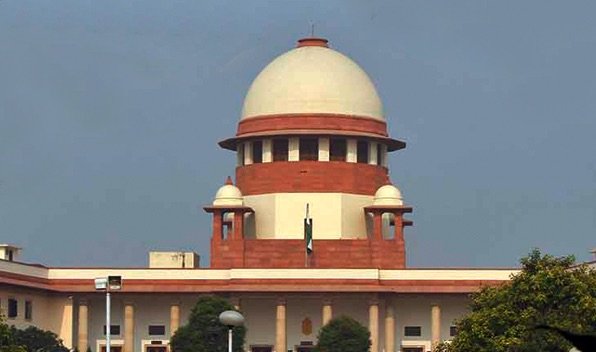The Supreme Court on Thursday allowed the railways to go ahead with the removal of unauthorized settlements on its land earmarked for the proposed Surat-Jalna route, but failed to maintain Railway Protection Force and prevent encroachment despite having a special act. Not before pulling it. enables it to do so.

A bench headed by Justice AM Khanwilkar said the railways may issue immediate notices to the occupants of illegal structures and give them two weeks to vacate the premises. For structures that do not need to be vacated immediately, four weeks can be given, said the bench, also comprising Justices Dinesh Maheshwari and CT Ravikumar.
The court ruled, “In any case, if the occupants fail to vacate the unauthorized structure, it is open to Western Railway to initiate appropriate legal action and forcibly remove the unauthorized structure with the help of local police force.” Will happen.”
Hearing a petition seeking directions for rehabilitation of the displaced, the top court said the collector of the district concerned should collect the names and details of such people before initiating the process of eviction. This is to provide suitable accommodation to “deserving and deserving persons”, the bench said.
The court said that the land owner i.e. the local and state governments should be paid Rs 2,000 for each structure.
“The amount will be paid initially by the Collector for a period of 6 months only to be shared equally by the owner of the land (local and state government),” it said, adding that the affected persons can apply for rehabilitation if The local government has such schemes.
The court said that if a plan is not prepared and implemented by the local authority, the persons likely to be affected by the demolition action can apply for allotment of premises through the ‘Pradhan Mantri Awas Yojana’, Provided it is processed within 6 months.
Western Railway had argued that the primary responsibility of ensuring that there is no encroachment on any property rests with the local government and the state government.
But the court said: “Though the argument appears to be genuine at first, (it) does not affect us as the Railway Act allows them to protect their property and to protect their property wherever it is situated.” They also have a railway force.”
“You want your property back and you are a union, you have to take financial responsibility. Why are you spending so much on police force when you cannot handle your assets? Merely issuing circulars will not help,” the bench added. Solicitor General KM Nataraja told. “We hold the Railways equally responsible for this situation and they are bound to provide assistance to those who are likely to be affected by this demolition.”
The court said encroachment of public land has been a “tragic reality” in the country in the last 75 years.
“It is the duty of the local government to see that there is no encroachment of public land. The time has come for the local government to become aware of this situation. It is a sad story that continues for 75 years. This is the sad story of this country. Some may invade. It is removed and the other encroaches. It is ultimately the taxpayers money that goes into the drain,” the court said.
Stating that the Railways has the power to initiate criminal proceedings against unauthorized occupants, the top court said such proceedings should be resorted to immediately after being brought to the notice of the authorities concerned.
Earlier, the Gujarat HC had dismissed the petition following which a petition was filed in the SC as a PIL.

